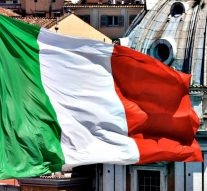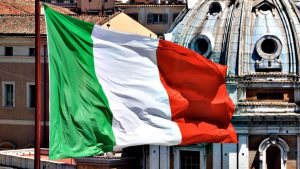
An Italian Cinderella story
Economy 11 December 2016A referendum over the Constitutional reforms in Italy was held on December the 4th. Whichever the result was voted upon, the involvement of international institutions within its economic framework was inevitably necessary. What kind of impacts did the Referendum leave to the Italian economy? Will the negative vote leave a long term influence to the overall European economy?
At the 2016 World Economic Forum edition, in Davos (Switzerland), Italian Prime Minister Mr Matteo Renzi announced that Italy “should not be a European museum, but its future”. This meant that Italy was ready to further open its stock exchange markets to the world`s financial centres. He argued that Italian economy “deserves to become the leading European one”. Besides the fact that Mr. Renzi had many political reasons to defend the constitutional reforms (due to his political survival over the Italian government throne), this new opening and set of proposed reforms has split the domestic wider public. Many of the political analysts were claiming that this referendum is the vote over the Renzi`s stake within the Italian Council of Minister.
Wells Fargo Advisory group`s strategic analyst Peter Donisanu, in his brief published several days before the Referendum, claimed that a “NO” outcome in Sunday’s vote would have had immediate implications for Italian banks, and near-to intermediate-term implications for the European Central Bank (ECB) and Italian and Euro area politics.
Some of Italy’s largest banks are facing financial difficulty and have looked to the capital markets in an effort to shore up their balance sheets. One such troubled bank, Banca Monte dei Paschi di Siena, is hoping to raise capital by issuing approximately €4 billion (or $4.27 billion) in stock by year end. Such an uncertain outcome could force the bank into a government bailout, “which would require politically unpalatable losses to bond holders”, claims Peter Donisanu.
When it comes to the economic and financial affairs, almost the best known event in the last decade surely was the world economic crisis. Its culmination (2008/2009) was the most shocking economic depression which the world has ever seen ever since the great depression occurred by the end of `20ies of the 20th century.
The Euroarea has been also hit by the crisis in 2009. All Italian macroeconomic indicators then measured significant downs. This country`s GDP per capita dramatically went down for more than 5% in 2009, while it recovered in 2010 when the growth of 1.37% was registered. Last year, Italian GDP per capita was in slight positive range (+0.73%), while its total GDP expressed in USD was on the same level as of the 2004 ($1.8 trillion). Inflation in 2015 was 0.8%, which remains at the same multiyear level for the previous period.
At the end, there are also claims that this Referendum is a test for the European Central Bank (ECB). The Wall Street Jour

http://blogs.r.ftdata.co.uk/the-world/files/2013/02/mas-italyflag.jpg
nal analysis announced that in a “NO” scenario, big turmoil is expected to hit Italy. Some European officials and even Mr. Mario Draghi announced that in any outcome of the referendum, the ECB will need to keep buying €80 billion a month of bonds of Italy. “The ECB cannot afford to systematically deviate from the rules of the bond-purchase program,” announced Jörg Krämer, chief economist in Frankfurt. “That would create the impression that QE is the same as Outright Monetary Transactions,” a controversial, potentially unlimited bond-buying program created by the ECB in 2012 but that hasn’t been implemented. Still, the ECB’s mandate is broad.
It is for sure that anything that affects the bloc’s €10 trillion economy, from an earthquake to an election, must be considered by the bank’s policy makers to keep on course.
This referendum was a key test for Mr. Renzi`s proposed political (and economical) reforms (as some claim), and also a test for the Italian banking system. Due to the fact that Italian macroeconomic balances are quite stable over the last few years, it is hardly unlikely for this event to interrupt the economy whit recovery records. The recent political disagreements between the Euroarea members are more threatening to the economic stability not only for Italy, but for the EU whole.


